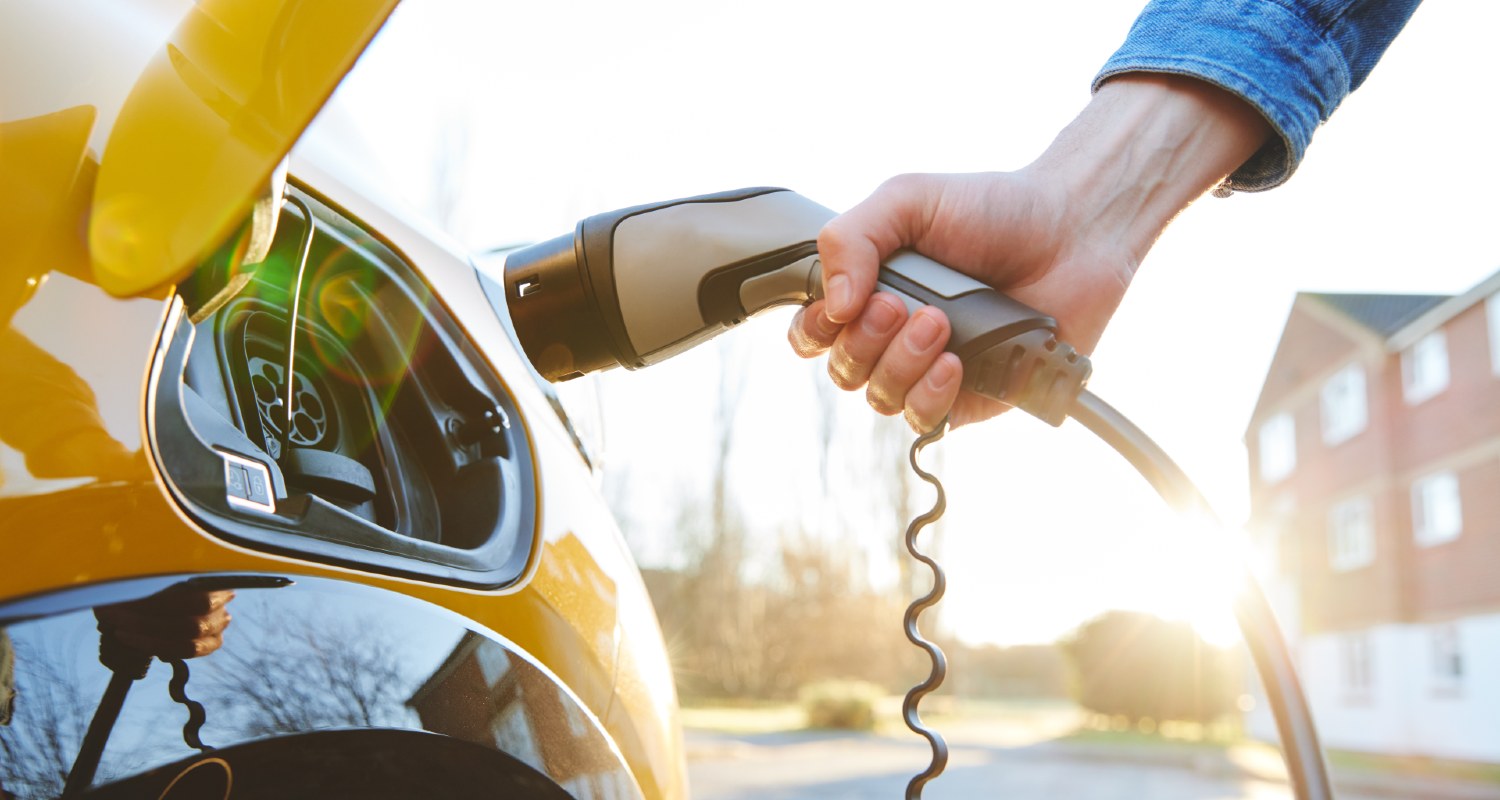
Technology and innovation
Learn about AI, the metaverse, and other technology news.

Sustainable mobility
Myths and realities of the electric car in Spain
Today, the electric car can already be used to make long journeys around Spain. According to experts, batteries have more range and there are increasingly more charging points to supply the current vehicle fleet, although slow charging points still predominate.


With more than 37,000 charging points installed, the sector considers that the current network is capable of serving the electric vehicles circulating in Spain
The range of batteries, charging times, and existence of supply points are some of the doubts that consumers often have when considering the purchase of an electric car. However, the automotive sector considers that these doubts are often based on “false beliefs”, which don't reflect the current situation of the electric vehicle in Spain. “We have been receiving negative messages about waiting times, operation, range, charging points (...), but today these reflections do not reflect reality,” explains Javier Izquierdo, technical director of the electric vehicle business association in Spain and Portugal, AEDIVE.
According to experts, electric mobility is guaranteed in our country, with cars equipped with batteries that have increasingly more kilometers of range and a network of charging points suitable for the number of existing vehicles. For the next few years, the challenge will be to accelerate the bureaucratic procedures required to put new charging points into service, as well as to increase the number of fast and ultra-fast points, where the charging time ranges from five to thirty minutes.

Range of vehicles
Although the range of vehicles is mentioned in the reports that analyze the electrification of transport, experts insist that it is a psychological element and highlight the exponential increase in the performance of batteries. In just a few years we have gone from the barely 150 or 160 kilometers of homologated range of the first generations to more than 500 kilometers today. Currently, a dozen high-end cars are advertised with ranges of between 600 and more than 700 kilometers. “There is a lot of misinformation, the consumer has to know that the range of electric vehicles has increased substantially and you can now travel without battery problems,” explains Christian Costaganna, CEO of Nissan in Spain.
Charging network
Despite popular belief, both AEDIVE and ANFAC, the manufacturers' association, consider the network of charging points to be capable of serving the vehicles currently circulating in Spain. “In terms of charging points we are doing very well for the volume of cars there are. We have 37,136 points, 35% more than a year ago, with an average use of only between 4 and 6 percent, a figure that supports that there is sufficient infrastructure,” explains Javier Izquierdo. “The main charging is at home and in non-routine trips, waiting times are a myth. It is true that there are specific moments when there are queues at strategic points, but there are sufficient options. The user also has to be aware that, to a certain extent, the electric car is like the cellphone, when it is stationary is the right time to charge it.” According to data from the European automobile industry association, ACEA, Spain is the sixth country in the European Union in terms of deployment of public charging points.
Charging times
Another factor to bear in mind is the time it takes to charge an electric car. Although the existing charging infrastructure in Spain is becoming more and more widespread, the distribution of fast charging points (80% of the battery in 30 minutes with 22 kW-50kW chargers) and ultra-fast (5-10 minutes with power ratings of 150 kW or more) is still improvable. According to AEDIVE, in September there were 8,563 fast charging points (23% of the total) and 4,255 ultra-fast (11.4%), although in the two cases there had been a sharp increase in the last year, with more than 3,700 new points installed.
Anfac considers that in order to meet the needs of users, 51% of the points must offer power ratings greater than 22 kW by 2024. Currently, 65% of points are of low-power, which implies minimum charging times of three hours. This situation highlights the need for a greater deployment of high-capacity points to reduce charging times and facilitate the operation of goods and passenger vehicles.
Installation of new points
Industry experts and professionals agree that the bureaucracy for the installation and commissioning of charging points is a determining factor in the development of the electric vehicle. “The bureaucracy in the implementation of charging points must be streamlined and their operation made easier,” says Félix García, ANFAC's director of communications, adding that at the end of the second quarter there were 9,145 points installed, but inoperative while awaiting authorization. “It is necessary to streamline and reduce bureaucracy. It is not normal that it takes more than 18 months to grant approval for an installed charging point to be connected to the electricity grid or put into operation.” In this sense, the manufacturers' association has asked the government to set up a state center to supervise, manage, and control the development of the infrastructure and help combat the public's perception of lack of foresight or improvisation.

One of the pending subjects is to speed up and reduce the procedures to activate the new charging points installed, with average waiting times of 15 months
In the same vein, Carlos Bermúdez, electric mobility business development manager at Repsol, highlights the importance of public-access charging infrastructure, especially in a country like Spain, where approximately 70% of vehicles "sleep" on the street and don't have access to a charging point at home. "It is essential to minimize and make more flexible all the barriers that we operators currently have when it comes to activating the charging points we are installing.”
To illustrate it, Bermúdez explains his own experience at Repsol. "A lot of things are being done well, but there is still a lot to do. We currently have more than 2,400 public-access charging points installed, of which only 1,900 are active. Currently, activating a charging point in Spain is taking us, on average, around 15 months, while it only takes us three to four weeks to complete the work." This has serious consequences both for the operators (among other things, it delays the recovery of an investment that needs to be covered for a long time in a market that, in addition, demands more and more installations and greater power) and for electric vehicle users, who cannot make use of this infrastructure during this period.
Electric car figures in Spain
+37,000
charging points installed in Spain
+12,800
fast and ultra-fast recharging points
15
months
is the average waiting time to activate a charging point
Related content